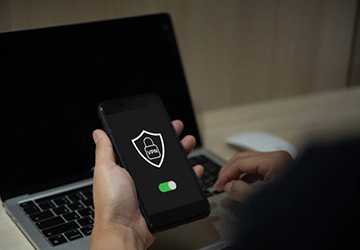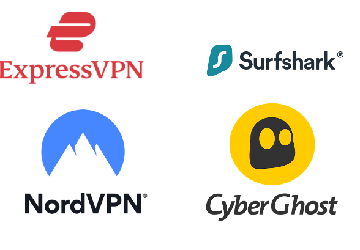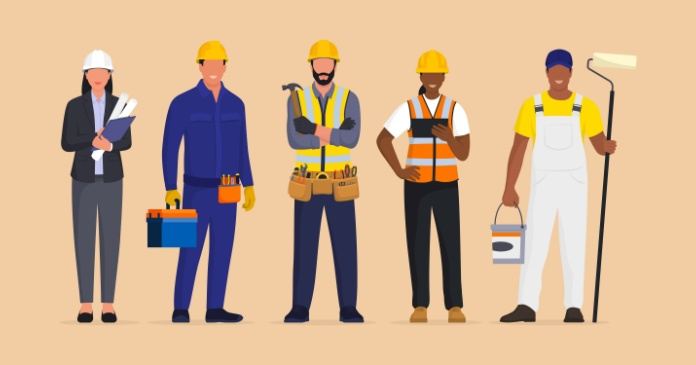
Do you ever worry about your online privacy and security when browsing the internet? Have you considered using a VPN but have yet to be convinced?
Many people need to pay more attention to the risks of unsecured internet connections. Public Wi-Fi networks can easily be hacked, allowing strangers to view your browsing activity and personal information. Even your internet service provider can monitor and sell your data.

A virtual private network (VPN) encrypts your connection, hiding your online activity and protecting your privacy. Here are seven compelling reasons why you should be using a VPN whenever you go online.
1. Your Data is Vulnerable on Public Networks
Have you ever connected to public Wi-Fi at a café or hotel? While convenient, using public networks exposes your data to potential hacking. Smartphones automatically look for and connect to known networks, meaning you could connect without realizing the risks.
A VPN protects all web traffic with encryption, even on public networks. Hackers won't be able to spy on your activity or steal passwords and information.
2. Prevent Price Discrimination While Shopping Online
Many online retailers use your browsing history and location to determine pricing and product recommendations. By analyzing your data and activity, they subtly push you towards more expensive purchases.
Connecting through a VPN server hides your location and browsing history from retailers. With that personal data, retailers can customize pricing based on your habits and income level. You have better control over what you pay.
3. Mask Your Location to Access Restricted Content
Streaming platforms and news websites frequently have licensing agreements limiting content to specific countries and regions. Travelling or living abroad means you lose access. A VPN assigns you a virtual location, helping you bypass geographic restrictions.
Connecting through a US-based VPN server lets you stream Hulu or NBC in Europe. Choose a UK-based server to watch BBC iPlayer. It's a quick and easy way to access your favourite entertainment and news.
4. Torrent Safely Without Detection
Peer-to-peer sharing through torrenting can quickly get you in trouble for piracy. Copyright infringement notices typically come with costly penalties. Your ISP can also throttle your connection for heavy torrenting activity.
A VPN masks your IP address, hiding torrenting activity from your ISP and copyright enforcement agencies. You avoid slowdowns and penalties, downloading files safely and anonymously.
5. Defend Against Malware and Phishing Attempts
Hackers distribute malware and launch phishing scams to steal financial information. Public connections make you an easy target for attacks to infect your device or trick you into sharing passwords. A VPN adds a layer of antivirus protection to all activity.
Encrypted connections prevent hackers from infiltrating your device or intercepting sensitive data you submit online. You can browse, shop, and download worry-free.
6. Stop Companies from Tracking Your Activity
Data brokers constantly collect your personal information and then sold to companies. Device fingerprints, browsing history, purchase activity - it's all traceable back to you without a VPN. Companies leverage that data for targeted marketing and product recommendations.
A VPN breaks the chain, preventing companies from tying any online activity back to you. Your financial information, personal health concerns, political views, and other private details stay private.
7. Secure Public Computers When Traveling
Checking your email or logging into social media on public devices puts your accounts at serious risk. Keylogging malware can record everything you type, giving hackers access to login credentials. A VPN protects against device tampering and snooping software.
Connecting through a trusted VPN before using any public computer or network keeps passwords and sensitive information safe. You can use the airport, hotel, and library computers worry-free while travelling.
The Best VPNs for Private and Secure Browsing
With so many VPN providers available, it can take time to determine which ones are trustworthy and secure. When shopping around, pay attention to the protocols and encryption methods, the number of server locations, connection speeds, and privacy policies.

Based on extensive independent testing and consumer reviews, these VPN services consistently rise above the competition to protect your privacy:
● NordVPN: NordVPN is arguably the most secure option, using next-generation encryption and an internet kill switch that instantly cuts your internet connection if the VPN drops. With ultra-fast speeds and over 5200 servers worldwide, performance is never sacrificed for security.
● ExpressVPN: ExpressVPN has a well-earned reputation for speed and reliability from over 3000 servers across 94 countries. Their no-logging policy, digital security features, and 24/7 customer support give peace of mind that you are protected.
● Surfshark: Surfshark offers many premium features for a fraction of the price for budget-focused shoppers. These include multi-hop connections jumping through multiple countries, private DNS and leak protection, and the ability to connect an unlimited number of devices.
● CyberGhost: CyberGhost is ideal for prioritizing streaming access and torrenting security. They allow torrenting activity across their sizable server network while providing dedicated streaming profiles for bypassing restrictions on popular sites.
No matter which service you select, using any trusted VPN significantly enhances privacy and security over unprotected connections. It's a simple way to anonymize your browsing activity and add encryption across your devices.
Take Control of Your Online Privacy with a VPN
As you can see, a quality VPN provides multiple layers of protection across various privacy and security vulnerabilities.
For less than $10 a month, you can browse the web anonymously, access more content, defend against hacking attempts, and control who can access your data.
What online activities do you want to keep private? Which reasons resonate most with you considering signing up for a VPN service? We're curious to hear your thoughts!







